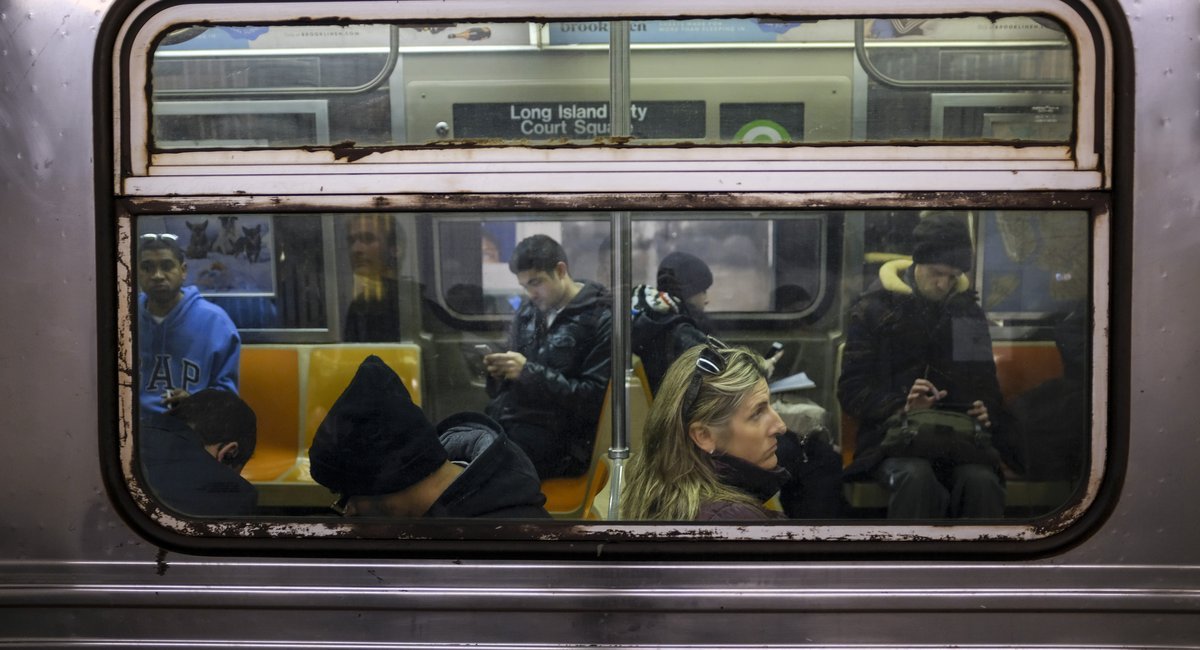This column originally appeared in En route, a weekly newsletter with everything you need to know about public transportation in the New York area.
To register to receive the full version, including answers to reader questions, trivia, service changes, and more, in your inbox every Thursday.
G train riders should brace themselves for a summer of pain starting Friday, as an MTA construction project will close entire segments of the line 24 hours a day through Sept. 3.
The closures are split into three phases:
- June 28-July 5: No trains between Court Square and Nassau Avenue.
- July 5-Aug. 12: No trains from Court Square to Bedford-Nostrand.
- Aug 12 – Sept 3: No trains between Bedford-Nostrand and Church Avenue.
The Crosstown Line is used by approximately 160,000 passengers every weekday.
The closures will be one of the largest construction-related disruptions to New York City’s public transportation system in years. Not since the MTA announced the closure of L train service between Manhattan and Brooklyn — a plan that former Governor Andrew Cuomo abruptly changed in 2019 — has public transit construction frustrated so many Brooklyners.
“It’s a mess,” said Genevieve Kammel Morris, 40, of Greenpoint. “It’s hard to get around Brooklyn without a G train.”
MTA officials say the closure is necessary to make long-awaited improvements to the G Line. The work will replace 30 miles of track, upgrade signals that rely on 1930s technology, lay new cables and replace more than 12 switches that regularly cause delays.
“These switches are among the oldest in the system, also dating back to the 1930s and 1940s, and are common pain points,” MTA Construction Chief of Staff Sean Fitzpatrick said during a committee meeting earlier this week.
While the work is underway, straphangers will be offered free shuttle buses along the closed segments. MTA officials said they have worked with the city’s Department of Transportation to clear intersections and add truck loading zones to prevent double parking along portions of the shuttle bus routes. The agency has also partnered with Citi Bike to give everyone in the city one free ride during the closure using the code “GTRAIN24.”
But G train riders have good reason to be skeptical about the speed of the MTA’s notoriously slow shuttle buses. They’ve had to use them for months during recent night and weekend closures along the line.
“If I can avoid it (the shuttle buses), I’m going to avoid it,” said Matthew Khan, 19. “I know it’s free, but it takes a lot longer, it’s more of an inconvenience.”
Yumi Munir, 23, prepared for the shutdown by learning to ride a bike for the first time. She said she plans to bike to work in Manhattan instead of taking the shuttle buses.
The discomfort will not go away even after this round of work. The MTA expects there will be more G line closures during evenings and weekends next year. But by 2027, officials say they will have upgraded the line’s signals to allow for faster, more frequent service on the G. The improvements could one day allow full trains on the line, instead of the abbreviated sets of five carriages that force passengers to sprint across platforms.
Curious commuter
Got a question for us? Curious Commuter questions are exclusive to On The Way newsletter subscribers. Register for free here and check Thursday’s newsletter for a link to ask your questions!
Question from Phil, from Long Island
Couldn’t the MTA just go rogue and implement congestion tolls?
What Clayton says
The MTA has all the congestion pricing toll infrastructure in place, but claims they can’t launch it without final approval from three parties: the Federal Highway Administration, the city’s Department of Transportation, and the state’s Department of Transportation. The agreement allows the MTA to implement a pilot program of tolling federally funded roads to subsidize public transportation. Hochul’s order to pause congestion pricing essentially tells the state DOT to hold off on signing the form.
“We are not coming up with plans to stage a coup against the state of New York,” MTA Chairman Janno Lieber said on Wednesday when asked this question.

